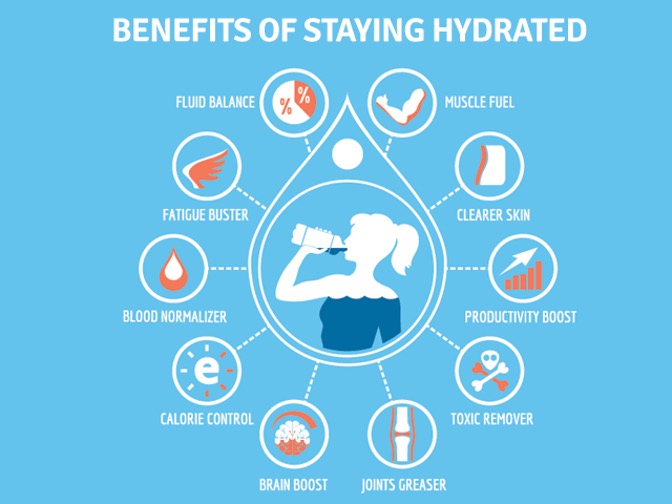Good hydration may reduce long-term risks for heart failure

“Similar to reducing salt intake, drinking enough water and staying hydrated are ways to support our hearts and may help reduce long-term risks for heart disease,” said Natalia Dmitrieva, Ph.D., the lead study author and a researcher in the Laboratory of Cardiovascular Regenerative Medicine at the National Heart, Lung, and Blood Institute (NHLBI), part of NIH.*
Similarly, Dr. Joseph Watso, PhD. At Florida State University, has made claims that “inadequate water intake is associated with obesity and also predicts greater future risk for developing cardiovascular disease.**” It is pretty clear that those who are chronically not meeting adequate hydration levels do have a higher rate of morbidity and mortality. Increasing water consumption helps reduce sodium levels in the blood, increases the blood capacity, and decreases the blood pressure required to get blood to the cells that need them.
There is increasing evidence that there is a “potentially protective effect of higher total water intake on the kidney. Chronic kidney disease is inversely related to higher intake of pure water, but not of other beverages.
In summary, starting early with the habits of good hydration is a practice that can last a lifetime. Further, those habits are increasingly important as we age, since the thirst sensation decreases, and, typically, older people are more likely to be significantly under-hydrated.
*Middle age serum sodium levels in the upper part of normal range and risk of heart failure. European Heart Journal, 2022. Doi: https://doi.org/10.1093/eurheartj/ehac138.
**Hydration Status and Cardiovascular Function, https://wwwncbi.nim.nih.gov/pmc/articles/PMC6723555

